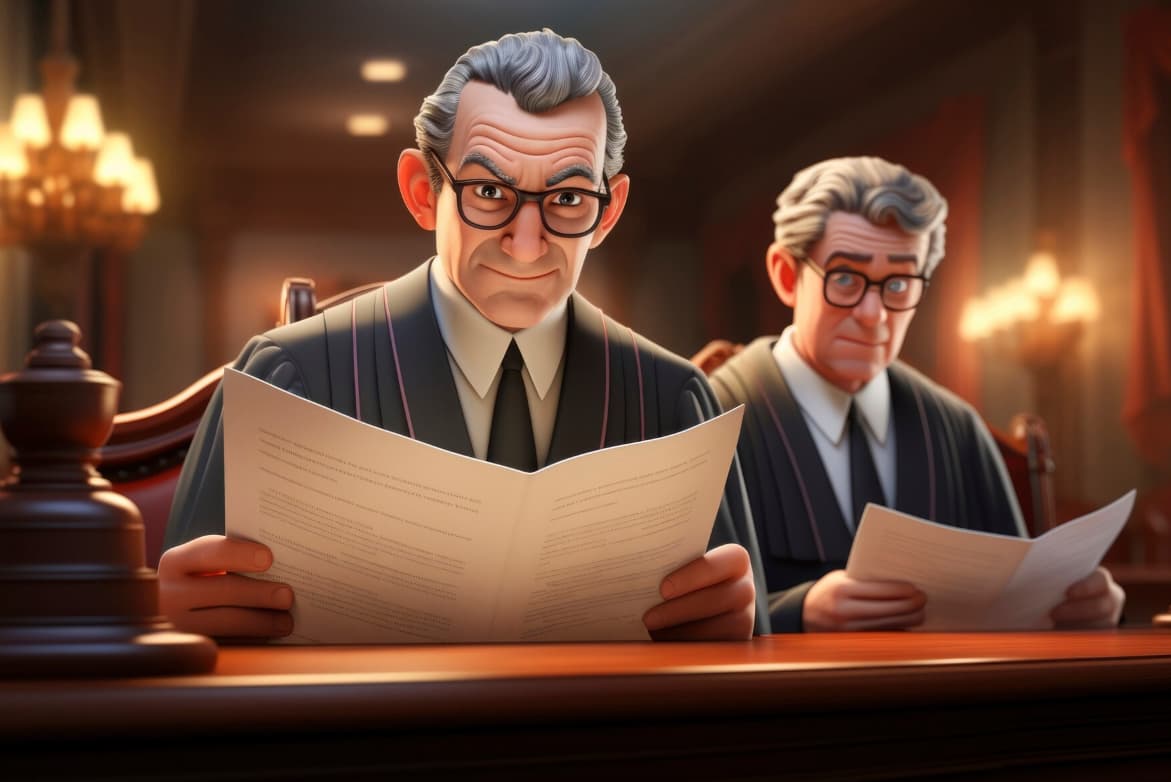Ever found yourself scratching your head over legal terms? You’re not alone! One common puzzle is the difference between an attorney and a lawyer, especially in Florida. Let’s clear up this confusion.
In many places, these words have different meanings. Typically, a lawyer is someone who’s finished law school, while an attorney has gone a step further by passing the bar exam and getting licensed to practice. But here’s the twist – in Florida, these terms are like two peas in a pod!
In the Sunshine State, “attorney” and “lawyer” mean the same thing. What matters is whether the person can legally practice law in Florida. This means being a member of the Florida Bar Association.
Why does this matter to you? Well, if you’re looking for legal help in Florida, knowing this can save you some confusion.
Whether someone calls themselves an attorney or a lawyer, the key is making sure they’re licensed to practice in Florida.
Difference Between An Attorney Vs Lawyer In Florida

In this article, we’ll dive deeper into what it takes to be a legal eagle in Florida, some special cases, and how to make sure you’re getting help from a real pro.
Let’s get started!
Are attorneys and lawyers the same?
You might hear people use “attorney” and “lawyer” like they mean the same thing. But are they the same? Let’s break it down:
Traditionally:
- A lawyer is someone who finished law school but isn’t practicing yet.
- An attorney is a step ahead. They’ve finished law school, passed the bar exam, and have all the licenses to practice law.
But here’s the twist: In Florida, these words mean the same thing! So if you’re looking for legal help in Florida, don’t worry too much about which word someone uses. The important thing is whether they can legally practice law in Florida.
The bottom line: In Florida, what matters most is if the person is a member of the Florida Bar Association. If they are, they can help you with all sorts of legal stuff, from personal injury cases to divorce papers.
Also Read: Jessica Bengels Attorney
Requirements for Attorneys in Florida
To be a lawyer in Florida, you can’t just say, “I’m a lawyer now!” There are some important steps to take.
Let’s look at what it takes:
- Get a law degree: First, you need to graduate from a law school that’s recognized as good enough.
- Pass the Florida Bar exam: This is a big test that checks if you know enough about the law to practice.
- Pass another test: It’s called the professional responsibility examination. It makes sure you understand the rules lawyers need to follow.
- Join the Florida Bar Association: Once you’ve done all that, you can become a member of this group. It’s like the official club for Florida lawyers.
Important to know: Only lawyers who are part of the Florida Bar can legally work as lawyers in Florida. It doesn’t matter if they’re super smart or great lawyers somewhere else. If they’re not in the Florida Bar, they can’t:
- Represent you in court
- File legal papers for you
- Give you legal advice
If someone tries to do these things without being in the Florida Bar, they’re breaking the law. It’s a serious crime called a third-degree felony.
Out-of-state Attorneys Exceptions
Now, you might be thinking, “What if I want a lawyer from another state to help me?” Well, there are some special cases where this might be okay:
- Special permission: A lawyer from another state can ask the court if they can represent someone for a specific case. But the court doesn’t have to say yes.
- Military spouses: If a lawyer is married to someone in the military who’s stationed in Florida, they might get to practice law in Florida for up to five years without taking the Florida Bar exam.
- House counsel: These are lawyers who work for a company. They might be allowed to do some legal work in Florida.
- Foreign lawyers: Lawyers from other countries can sometimes advise about the laws in their home country to people in Florida.
Remember: These are exceptions, not the rule. Most of the time, you’ll need a lawyer who’s part of the Florida Bar.
What Services Can Lawyers Provide When Unlicensed?
Some people finish law school but don’t pass the bar exam. They’re called Juris Doctors. Here’s what they can and can’t do:
Can do:
- Work under a licensed lawyer’s supervision
- Do legal research
- Help prepare for court hearings
- Write first drafts of legal documents
Can’t do:
- Argue in court
- Take depositions (even though they can be there to watch)
- Sign legal documents involved in a court case
Think of them like assistants to real lawyers. They can help out, but they can’t do the big, important legal stuff on their own.
How to Check If Someone Is Licensed?
Want to make sure your lawyer is legit? It’s easier than you might think:
- Go to the Florida Bar Association website
- Look for their search tool
- Type in the lawyer’s name
- Check the results
What you’ll find out:
- If they’re licensed
- If they’re in good standing with the bar
- If they’ve been in trouble in the last 10 years
It’s a quick and easy way to make sure you’re working with a real, licensed lawyer.
Can a Florida Personal Injury Attorney Represent You in Another State?
Let’s say you got hurt while on vacation in Alabama. Can your Florida lawyer help you there? Well, it depends:
If the lawyer is licensed in Alabama: Yes, they can help you.
If they’re not licensed in Alabama: They might still be able to help if they get special permission. This is called “pro hac vice.” But there are some rules:
- They need to work with a lawyer who is licensed in Alabama
- It can cost more money
Things to think about:
- It might be easier and cheaper to find a lawyer in the state where you got hurt
- Your Florida lawyer might know lawyers in other states who can help you
How to Find The Right Attorney?
Finding a good lawyer is about more than just making sure they’re licensed. Here are some tips to help you find the right one:
- Check their website: Look for:
- Client testimonials
- Awards or special recognitions
- Information about their experience
- Google them: See if there are:
- News stories about them
- Reviews from other clients
- Ask for a free consultation: Many lawyers offer this. It’s a chance to:
- Meet them in person
- Ask questions
- See if you feel comfortable with them
- Ask about their experience: Find out:
- How long they’ve been practicing
- How many cases like yours they’ve handled
- What their success rate is
- Check their communication style: Make sure:
- They explain things in a way you understand
- They’re responsive when you contact them
- You feel comfortable talking to them
Remember, finding the right lawyer is about more than just their credentials. You want someone you can trust and work well with.
FAQs on Attorney Vs Lawyer:
Here are some common questions people have about lawyers and attorneys in Florida:
- Q: Can a lawyer from New York help me with a case in Florida?
A: Not usually. They would need to either join the Florida Bar or get special permission from the court.
- Q: What’s the difference between a Juris Doctor and a lawyer?
A: A Juris Doctor has finished law school but hasn’t passed the bar exam. A lawyer has done both.
- Q: How long does it take to become a lawyer in Florida?
A: Usually about 7 years after high school – 4 years of college and 3 years of law school. Then they need to pass the bar exam.
- Q: Can I represent myself in court in Florida?
A: Yes, but it’s usually not a good idea unless it’s a very simple case.
- Q: How much does a lawyer in Florida cost?
A: It varies a lot depending on the type of case and the lawyer’s experience. Some work on contingency (they only get paid if you win), while others charge by the hour.
Conclusion:
So, there you have it! In Florida, “attorney” and “lawyer” mean the same thing. The important thing is that they’re licensed to practice law in Florida.
Remember these key points:
- Florida lawyers must be part of the Florida Bar Association.
- You can easily check if a lawyer is licensed on the Florida Bar website.
- Lawyers from other states usually can’t practice in Florida without special permission.
- Finding the right lawyer is about more than just their license – look at their experience and how well you work together.
If you need legal help in Florida, don’t be afraid to ask questions and do your research.
A good lawyer can make a big difference in your case, so it’s worth taking the time to find the right one for you.



